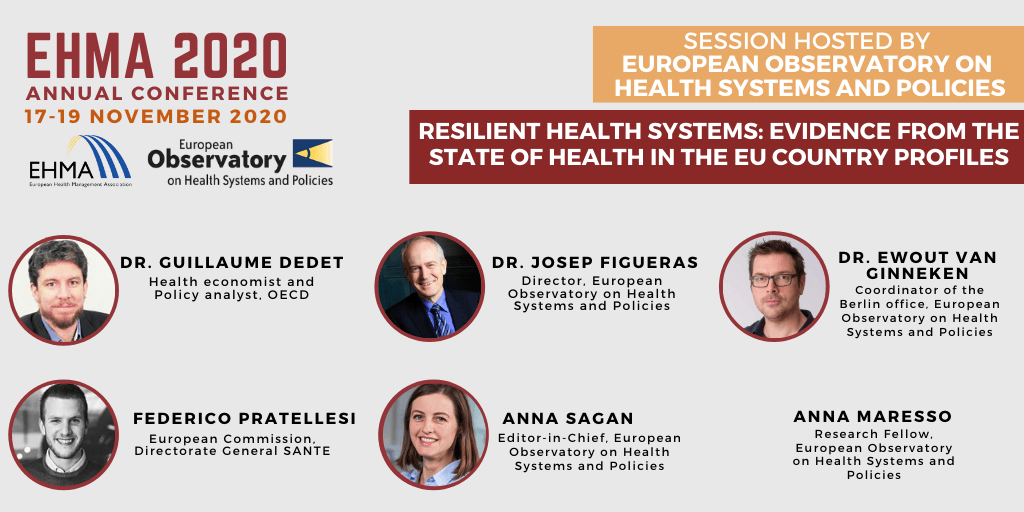The idea of resilient health systems has been gaining traction among policymakers and is now particularly cogent in the wake of the challenges that countries are facing in addressing the COVID-19 pandemic. In this workshop on Tuesday, 17 November at 14.45, the European Observatory on Health Systems and Policies will present the resilience framework that was first developed three years ago and applied in the State of Health in the EU (SoHEU) Country Profiles. They will also discuss subsequent new work on health system resilience that is being undertaken by the SoHEU partners.
The Country Profiles are a joint initiative between the European Commission, the OECD, and the European Observatory on Health Systems and Policies. The workshop, moderated by Ewout van Ginneken, will feature representatives of the three organisations: Guillaume Dedet, OECD; Josep Figueras, Anna Sagan and Anna Maresso, European Observatory on Health Systems and Policies; and Federico Pratellesi, European Commission, Directorate General SANTE.
The presenters will briefly introduce the SoHEU cycle and then explain that the resilience framework used in the 2019 Profiles adopts a broader definition of resilience, covering the ability to respond to extreme shocks as well as measures to address more predictable and chronic health system strains, such as population ageing or multimorbidity. The framework consists of three dimensions, and their associated policy entry points and a list of indicators and policy measures, as building blocks for fostering resilience. Based on this framework, we will present the results of an audit of the most common health system resilience strategies and challenges identified from the 30 Country Profiles published in 2019.
A panel discussion will follow, showcasing a variety of new work on resilience being done by the European Commission, OECD, and the Observatory. These new contributions to understanding resilience take into account the impact of, and country responses to, the Covid-19 pandemic, the most recent significant shock to health systems in Europe and globally. Panellists will highlight how policy-relevant elements of this new work can feed into improving the analysis and the evidence-base generated in the next editions of the Country Profiles for 2021.

